Related Research Articles

The University of California, San Francisco (UCSF) is a public land-grant research university in San Francisco, California. It is part of the University of California system and is dedicated entirely to health science and life science. It conducts research and teaching in medical and biological sciences.

The John D. and Catherine T. MacArthur Foundation is a private foundation that makes grants and impact investments to support non-profit organizations in approximately 117 countries around the world. It has an endowment of $7.6 billion and provides approximately $260 million annually in grants and impact investments. It is based in Chicago, and in 2014 it was the 12th-largest private foundation in the United States. It has awarded more than US$7.92 billion since its first grants in 1978.

The Rockefeller University is a private biomedical research and graduate-only university in New York City, New York. It focuses primarily on the biological and medical sciences and provides doctoral and postdoctoral education. It is classified among "R2: Doctoral Universities – High research activity." Rockefeller is the oldest biomedical research institute in the United States.
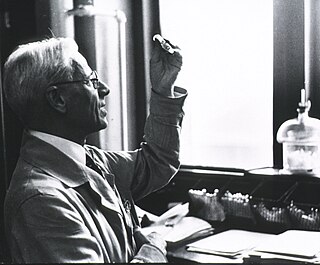
Michael Heidelberger was an American immunologist, often regarded as the father of modern immunology. He and Oswald Avery showed that the polysaccharides of pneumococcus are antigens, enabling him to show that antibodies are proteins. He spent most his early career at Columbia University and comparable time in his later years on the faculty of New York University. In 1934 and 1936 he received the Guggenheim Fellowship. In 1967 he received the National Medal of Science, and then he earned the Lasker Award for basic medical research in 1953 and again in 1978. His papers are held at the National Library of Medicine in Bethesda, Maryland.
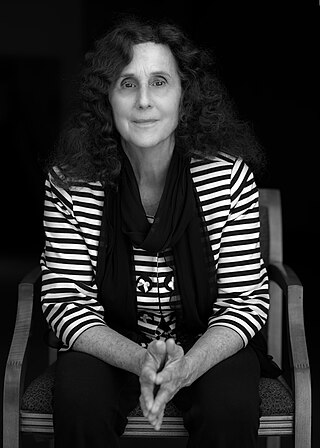
Pamela Jane Bjorkman NAS, AAAS is an American biochemist. She is the David Baltimore Professor of Biology and Biological Engineering at the California Institute of Technology (Caltech), Her research centers on the study of the three-dimensional structures of proteins related to Class I MHC, or Major Histocompatibility Complex, proteins of the immune system and proteins involved in the immune responses to viruses. Bjorkman is most well known as a pioneer in the field of structural biology.

Elvin Abraham Kabat was an American biomedical scientist and one of the founding fathers of quantitative immunochemistry. Kabat was awarded the Louisa Gross Horwitz Prize from Columbia University in 1977, National Medal of Science in 1991, and American Association of Immunologists Lifetime Achievement Award in 1995. He is the father of Jon Kabat-Zinn.
Barton Ford Haynes is an American physician and immunologist internationally recognized for work in T-cell immunology, retrovirology, and HIV vaccine development. Haynes is a Frederic M. Hanes Professor of Medicine and Immunology at Duke University Medical Center. He is the director of the Duke Human Vaccine Institute and the Duke Center for HIV/AIDS Vaccine Immunology and Immunogen Discovery (CHAVI-ID), which was funded by the National Institute of Allergy and Infectious Diseases (NIAID) in 2012. In addition, Haynes directs the B-cell Lineage Envelope Design Study, the Centralized Envelope Phase I Study, and the Role of IgA in HIV-1 Protection Study as part of the Collaboration for AIDS Vaccine Discovery (CAVD), which was funded by the Bill and Melinda Gates Foundation in 2006.

Tasuku Honjo is a Japanese physician-scientist and immunologist. He won the 2018 Nobel Prize in Physiology or Medicine and is best known for his identification of programmed cell death protein 1 (PD-1). He is also known for his molecular identification of cytokines: IL-4 and IL-5, as well as the discovery of activation-induced cytidine deaminase (AID) that is essential for class switch recombination and somatic hypermutation.
Jeffrey Victor Ravetch is a professor and head of the Laboratory of Molecular Genetics and Immunology at The Rockefeller University.
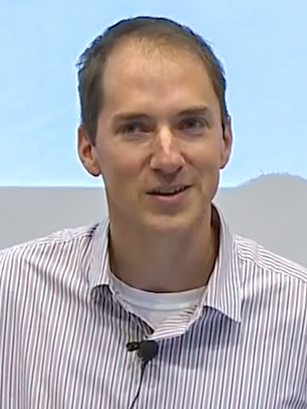
David B. Lobell is an agricultural ecologist. He is currently the Gloria and Richard Kushel Director of the Center on Food Security and the Environment and Professor of Earth System Science at Stanford University. He is additionally a William Wrigley Fellow at the Stanford Woods Institute for the Environment and a Senior Fellow at Stanford's Freeman Spogli Institute for International Studies. Lobell was awarded a MacArthur "Genius" Fellowship in 2013 for "unearthing richly informative, but often underutilized, sources of data to investigate the impact of climate change on crop production and global food security."

William Erwin Paul was an American immunologist. He and Maureen Howard discovered interleukin 4, while an independent team led by Ellen Vitetta did the same in 1982. Paul worked on AIDS research for much of his career at the National Institutes of Health (NIH). He served as president of the American Association of Immunologists from 1986 to 1987.

Michel C. Nussenzweig is a professor and head of the Laboratory of Molecular Immunology at The Rockefeller University and a Howard Hughes Medical Institute investigator. He is a member of both the US National Academy of Medicine and the US National Academy of Sciences.

Manu Prakash is an Indian scientist who is a professor of bioengineering at Stanford University. Manu was born in Meerut, India. He is best known for his contributions to the Foldscope and Paperfuge. Prakash received the MacArthur Fellowship in September 2016. He and his team are also working on a water droplet based computer in Stanford University. His work focuses on frugal innovation that makes medicine, computing and microscopy accessible to more people across the world.
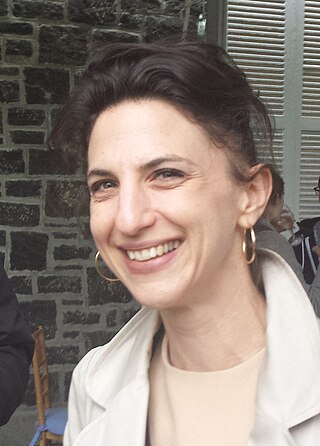
Vanessa Julia Ruta, Ph.D. is an American neuroscientist known for her work on the structure and function of chemosensory circuits underlying innate and learned behaviors in the fly Drosophila melanogaster. She is the Gabrielle H. Reem and Herbert J. Kayden Associate Professor and Head of the Laboratory of Neurophysiology and Behavior at The Rockefeller University and, as of 2021, an Investigator of the Howard Hughes Medical Institute.
Howard Chi Hang is an American chemist and professor in the Department of Immunology and Microbiology and Department of Chemistry at The Scripps Research Institute. He was previously Richard E. Salomon Family Associate Professor and the head of the Laboratory of Chemical Biology and Microbial Pathogenesis at the Rockefeller University in New York City. He won the Eli Lilly Award in Biological Chemistry in 2017.

Nina Papavasiliou is an immunologist and Helmholtz Professor in the Division of Immune Diversity at the German Cancer Research Center in Heidelberg, Germany. She is also an adjunct professor at the Rockefeller University, where she was previously associate professor and head of the Laboratory of Lymphocyte Biology. She is best known for her work in the fields of DNA and RNA editing.

Luciano Marraffini is an Argentinian-American microbiologist. He is currently professor and head of the laboratory of bacteriology at The Rockefeller University. He is recognized for his work on CRISPR-Cas systems, being one of the first scientists to elucidate how these systems work at the molecular level.
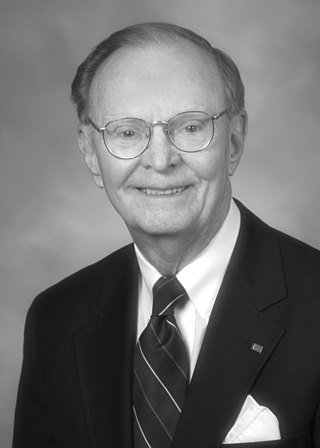
Richard Michael Krause was an American physician, microbiologist, and immunologist. He was the director of the National Institute of Allergy and Infectious Diseases from 1975 to 1984. Krause later served as the dean of medicine at Emory University before returning to National Institutes of Health as a senior scientific advisor at the John E. Fogarty International Center. Krause was formerly a longtime professor at Rockefeller University.

Barney S. Graham is an American immunologist, virologist, and clinical trials physician.

John R. Mascola is an American physician-scientist, immunologist and infectious disease specialist. He was the director of the Vaccine Research Center (VRC), part of the National Institute of Allergy and Infectious Diseases (NIAID), National Institutes of Health (NIH). He also served as a principal advisor to Anthony Fauci, director of NIAID, on vaccines and biomedical research affairs. Mascola is the current Chief Scientific Officer for ModeX Therapeutics.
References
- ↑ "Meet the MacArthur 'genius' tracking the evolution of our cells". STAT. October 12, 2017. Retrieved November 1, 2017.
- ↑ "Gabriel Victora named 2017 MacArthur Fellow". News. Rockefeller University. October 11, 2017. Retrieved November 1, 2017.
- 1 2 3 "Gabriel D. Victora". Our Scientists: Heads of Laboratories. Rockefeller University. Retrieved November 1, 2017.
- ↑ "The music stopped". revistapesquisa.fapesp.br. Retrieved April 7, 2019.
- ↑ "Gabriel Victora, Immunologist". MacArthur Fellows Program 2017. MacArthur Foundation. Retrieved November 1, 2017.
- ↑ "Tracking Antibody Diversity". NIH Director's Early Independence Award Highlights. National Institutes of Health. June 26, 2013. Retrieved November 1, 2017.